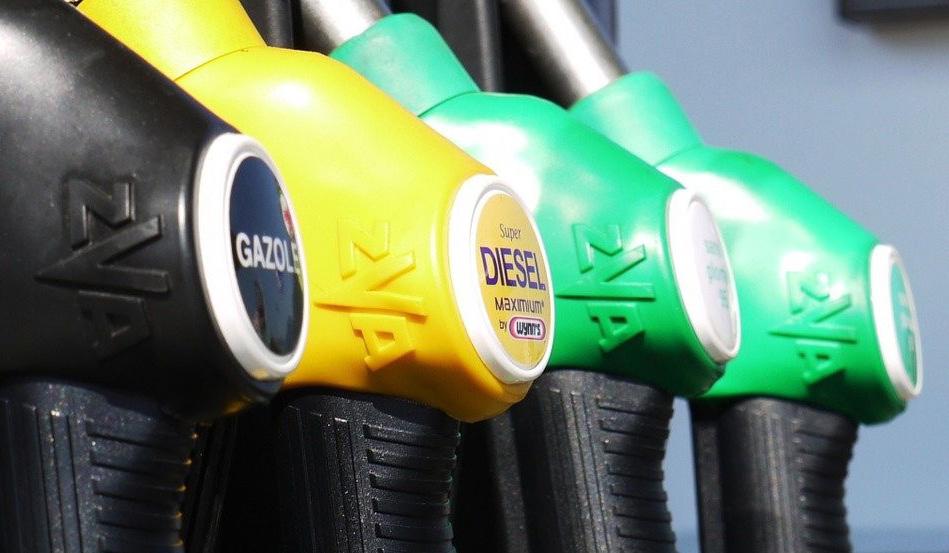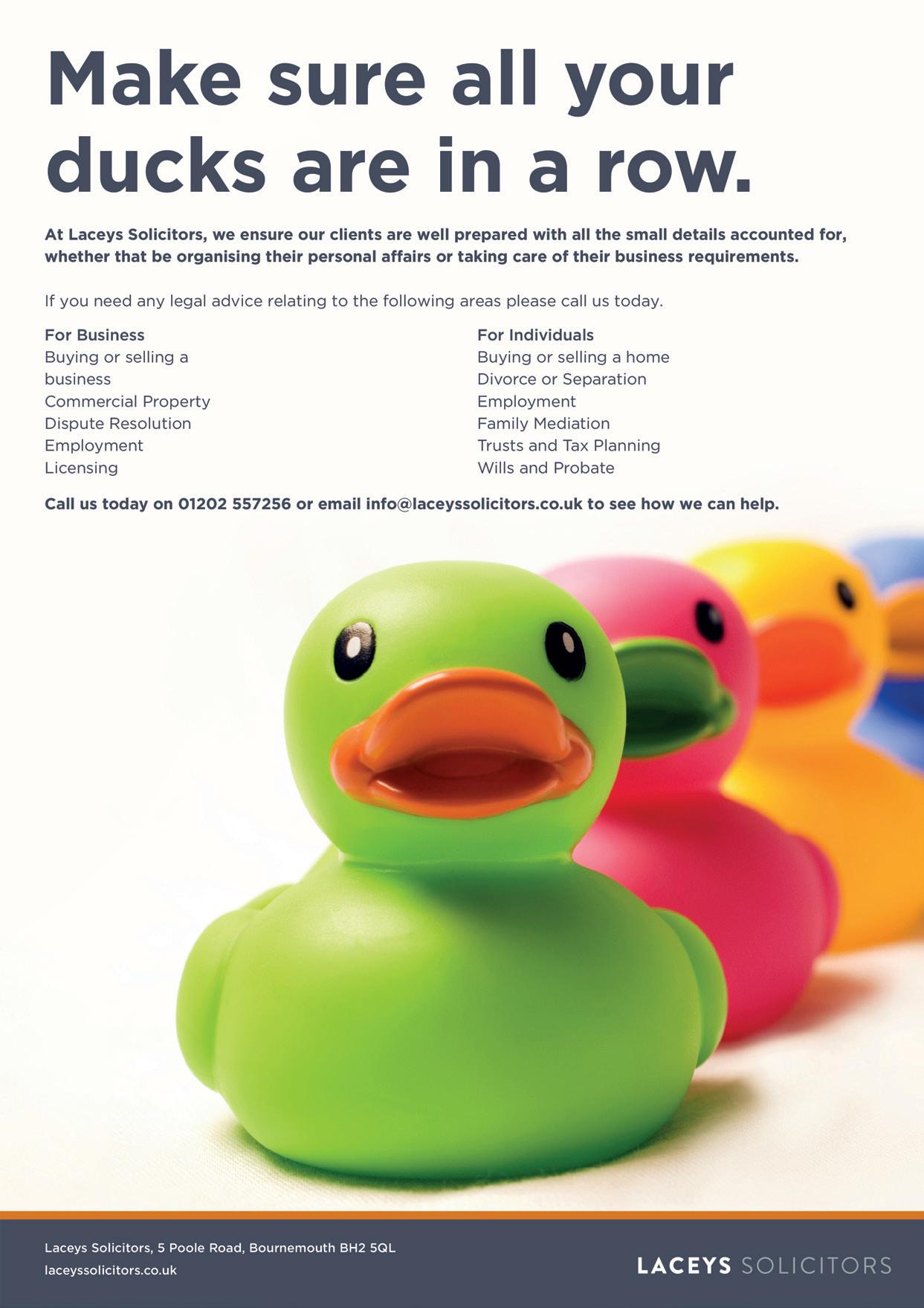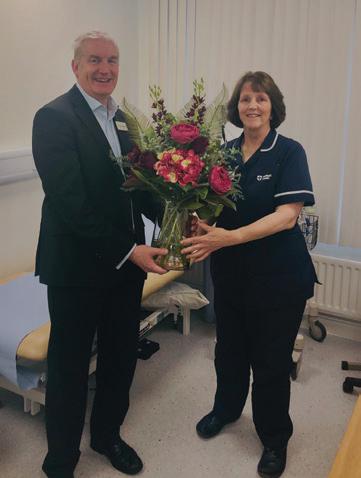
9 minute read
International trade
Free International Trade Training extended – yes, you read that correctly, FREE!!!
Business are being urged to sign up for free International Trade training as we prepare for 31st January 2021
Advertisement
We are delighted to see that the government has extended the deadline to apply for customs support training to 31st January 2021. When this extension was announced in February 2020, only around 70% of the original funding had been claimed leaving almost a third still available. That’s over £7 million ready and waiting for you to use for International Trade preparations. What grants are available? You can apply for grants to help with: • Recruitment • Training • IT Improvements Many companies in Dorset have successfully secured funding to support training for their International Trade staff. The grants were originally introduced as part of the government’s support for businesses in preparing to leave the EU. Although we are now in the transition period, we still need to prepare for the changes that will take place at the end of 2020. Details of these changes are being provided all the time but will certainly include the need for customs declarations for goods exported to countries that remain in the EU. But we don’t do our own customs declarations – could we still be eligible? Absolutely! As part of preparing for the end of the transition period, you will have to consider how customs declarations will be completed for your exports to countries that remain in the EU. Dorset Chamber have a full programme of training courses that can help you plan for these changes and put the processes in place that you will need. In addition, Dorset Chamber can provide bespoke courses for your company. Do you have an example of a company that has successfully applied for a grant? Albion Stone PLC in Portland received some bespoke training earlier this year. The day was structured around their needs and they were able to bring people together from different areas of the business. Julia Sparrow from Albion Stone explains how pleased they were with the decision to book bespoke training. “We spoke with the trainer in advance of the day and were able to include topics that were relevant to us. After the training, the team here felt they had gained more from the course than they expected, and it was an enjoyable and interesting day”. One of the attendees described it as a great learning experience and valued how interactive the day was. They found it straightforward to enlist the help of the Chamber in applying for a grant and organising the training. They spoke directly to the trainer in advance to ensure the training met their needs. The training day ran very efficiently at their premises and feedback from the attendees was excellent. The whole team now understands what is needed for international trade in their company generally, as well as preparing for the end of the transition period. We’re only a small company – we’re not sure we could put together enough people for our own training. That’s no problem – there is a full programme of public training courses provide by the Dorset Chamber which can be used to ensure the people in your company that work on International Trade understand what is needed. How do I find out more? Contact the International Trade Team at the Dorset Chamber. They have successfully helped numerous companies in Dorset secure grant funding for the training they need. Grants do not need to be paid back and provide valuable funds to invest in the training of your staff. The team at the Chamber has built up experience with the application process so will be able to quickly tell you if you are eligible and how the process works.
There may be no such thing as a free lunch (as the saying goes), but many companies have already discovered that free international trade training exists and is available now. What are you waiting for?
Are diesel cars
really that bad?
Back in the year 2000 when we were all told planes would fall out of the skies and our PC’s would pack up and never work again, dieselengined cars accounted for just 14.1% of the new car market. By 2011, this figure had increased to 50.6%.
One of the main reasons for this rise in popularity was the introduction of Benefit in Kind for company car drivers in 2002, who, at the time were encouraged to choose lower emission cars which diesels were. The change in taxation regime also led to many engineering advances which led to a reduction is CO2 emissions from an average of 181 g/km in 2000 to 120.1 g/km in 2016.
The landscape changed for diesels in 2015 though when reports of air quality concerns started hitting the headlines and what became known as ‘Dieselgate’ led to manufacturers selling 38% fewer diesel cars by the end of 2018 than at their peak. NOx became the new CO2 and we started to see the introduction of Clean Air Zones, increases in Vehicle Excise Duty and supplements to Company Car Tax.
A recent Government statement read ‘cleaner diesel cars and vans can play an important part in reducing CO2 emissions from road transport during the transition to zero-emission vehicles’. With the introduction of the new emissions testing regime known as The Real Driving Emissions (RDE) test, future vehicles will be tested more rigorously to measure pollutants such as NOx, emitted by cars on the road. With more and more engineering developments we are starting to see manufacturers produce diesel engine cars which are scoring maximum points for the Green NCAP Clean Air Index, the same as electric vehicles. Whilst electric vehicles produce no pollutant emissions, we are beginning to see diesel engine cars, with proper calibration and effective after treatment, can deliver extremely low pollutant emissions.
In recent test carried out by a German automobile club, one of the diesel vehicles tested did not emit any NOx emissions at all which demonstrates how quickly the engineers are developing clean diesel engines.
Might Diesel cars still be a good choice for company car drivers?
Maybe. The latest RDE2 compliant diesel cars are exempt from the 4% diesel Benefit in Kind (BiK) surcharge which comes into effect from April 2020, meaning they are charged at the same rate as a petrol engine powered car with the same CO2 emissions. Some manufacturers are even producing plug-in hybrid diesels which not only are very fuel efficient, but also benefit from an incredibly low BiK rate.
Neil Carlton, Director of Poole based dorsetcarleasing.uk said ‘over the past couple of years there has been great confusion when it comes to the real situation regarding petrol versus diesel cars. We have had situations whereby companies have switched from diesel cars into petrol equivalents and reported a significant drop in MPG which has pushed their and their employee’s fuel spend up by around 15-20%. We strongly recommend that any future car changes are considered very carefully, and proper advice should be sought’.
Neil Carlton and his business partner Andrew Garaway can be contacted via www. dorsetcarleasing.uk or by calling 01202 821354



Yellow Coaches is upgrading its vehicles to ones that are so green they produce less harmful nitrogen oxide than the average family diesel car.
And the operator – part of Bournemouth-based Yellow Buses – has re-branded its fleet so they stand out even more on the roads.
Two new luxury specification Irizar i6 Integral coaches have been added and can enter the increasing number of Clean Air Zones.
Yellow Coaches has grown rapidly over the last year and now has a dedicated team, uniform and identity.
Jay Thornton of Yellow Coaches said “The management buyout of Yellow Buses last year provided an opportunity to review our coaching fleet plans and adjust the business to tackle some industry challenges and better meet client demand, such as the increasing number of Clean Air Zones.
“Irizar are one of the best all-round brands on the UK market and we acquired our first in September 2019, retro-fitted to Euro 6 standard. “We returned to Irizar in December to acquire two further Integral i6 coaches which boast a high specification, a superior level of comfort and are equipped with modern Euro 6 technology. “This enables us to enter clean air zones in UK cities, lowering our carbon footprint, seeing higher client satisfaction and improved fuel efficiency.
“I am immensely proud of the progress Yellow Coaches has made in private hire and contracts. “When I joined the Yellows just over a year ago, I stated that I would grow our client base, aim to exceed customer expectations and add more vehicles as we move forward. “Our private hire business has been turned around and is barely recognisable 12 months on having been given its own identity, a dedicated team, new uniform and now a refreshed fleet to help move us forward.”
www.yellowbuses.co.uk

Long service award for Nuffield Health Bournemouth Hospital nurse
Nuffield Health Bournemouth Hospital, part of the UK's largest healthcare charity, is celebrating following an announcement that the charity has partnered with The Florence Nightingale Foundation during Year of the Nurse and the bicentenary of Florence Nightingale's birth.
To coincide with the launch of this national partnership and to celebrate the role of the nurse, Nuffield Health Bournemouth Hospital has acknowledged its longest serving nurse, Jacalyn McLaughlin, with a 35-year long service award.
The award recognises the dedication and commitment Jacalyn has brought to her role in delivering high quality compassionate nursing care. Since joining the hospital, Jacalyn has witnessed huge changes during her nursing career. She says: “Times have certainly changed since I began my career. We used to have to carry glass thermometers before temperature probes were introduced and we had metal bed pans that needed to be washed out by hand! “A patient’s stay in hospital is also so much shorter than it used to be. Those having total hip and knee replacements required hospital care for 10 to 14 days post operation, whereas now it is only three nights due to medical advances. I really enjoy my job. Having time to care is one of the key elements and being part of the Nuffield
44 April 2020 | Dorset Business Focus team for more than 30 years is a privilege – it’s such a wonderful charity.”
The Year of the Nurse is a global initiative to celebrate the role of nurses and midwives and will focus on how the nursing and midwifery community can work to strengthen the voice of the professions. As part of its partnership with the Foundation, Nuffield Health will be developing a number of activities throughout the year to support and promote the role of the nurse.
The healthcare charity is also participating in the Foundation’s ‘Nightingale Challenge’, to equip and empower the next generation of nurses and midwives during 2020. Throughout the year, Nuffield Health will invest in the development of future healthcare leaders through mentoring, coaching and training as part of this challenge.
David McNair, hospital director at Nuffield Health Bournemouth Hospital, adds: “Nurses go into the profession because they want to care and look after others, physically and emotionally. We’re delighted to be acknowledging Year of the Nurse through our partnership with The Florence Nightingale Foundation while at the same time acknowledging one of our first longest serving members of staff. Without our dedicated nursing team we would not be able to continue to deliver the brilliant patient care that we do.”











